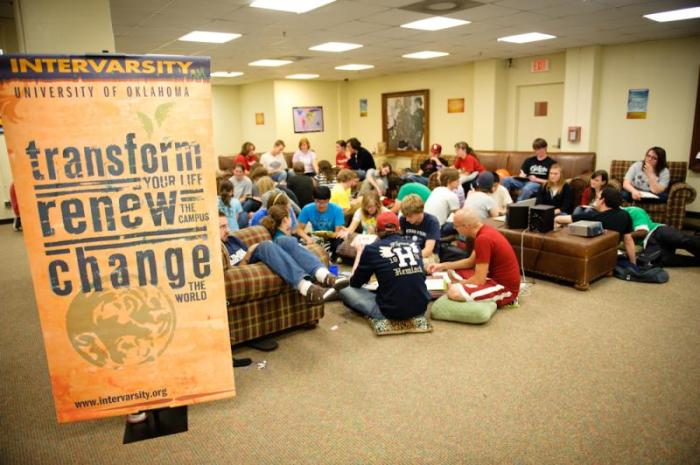Court Upholds Firing of Spiritual Director by InterVarsity Christian Fellowship Because She Failed to Save Her Marriage

A federal appeals court in Michigan upheld the firing of a former spiritual director at InterVarsity Christian Fellowship last Thursday because she failed to save her marriage.
InterVarsity Christian fellowship is an evangelical campus mission that establishes and advances witnessing communities of students and faculty at colleges and universities across the U.S., according to the organization's website.
Alyce Conlon began working with InterVarsity in 1986 and served at the organization's spiritual director in Grand Rapids from 2004 to 2011 until she was fired after her marriage fell apart, according to a mlive report.
Conlon had contended in a 2013 lawsuit against InterVarsity that she was treated unfairly because she was aware of two male employees who had divorced their spouses and were not fired or disciplined by the nonprofit.
According to the lawsuit, after she informed Marc Papai, her supervisor at InterVarsity, that she was having marital problems in 2011, she was placed on paid leave and encouraged to work on her marriage.
In May 2011, Papai and Fred Bailey, regional director of InterVarsity's Great Lakes Region, became "heavily involved in plaintiff's attempts to reconcile her marriage," according to Conlon's attorney, Katherine Smith Kennedy, in the lawsuit.
"During this leave of absence, plaintiff followed each and every requirement of the Separation and Divorcing Staff Policy, including counseling sessions and continuing communication with her supervisors as to her progress," she noted.
During the absence, Bailey and Papai contacted Conlon's then husband, David Reimer, without her consent to discuss their marriage. Papai reportedly issued Reimer a "staff only confidential policy" then asked him to write a letter about his marriage to Conlon who was later ordered to see a counselor of her husband's choice.

"Despite plaintiff meeting all of IVCF's requirements for her return to work, IVCF refused to allow plaintiff to return to work because she was not successful in reconciling her marriage," noted Conlon's lawsuit.
Records show that whenever employees have marital problems InterVarsity "encourages employees to seek appropriate help to move toward reconciliation. IVCF will consider the impact of separation or divorce on colleagues, students, faculty and donors."
Conlon's request to return to work was reportedly denied because, according to a Sept. 12, 2011, email, "Bailey stated knowing falsehoods to several individuals that (Conlon) did not make efforts to reconcile her marriage." and put her on unpaid leave.
In a letter, Bailey noted: "It is with sorrow that we acknowledge that reconciliation has proven unsuccessful. We have not seen enough progress to continue the process any longer. As a result, effective Dec. 15, 2011, your employment with InterVarsity Christian Fellowship/USA will be terminated."
Her husband, David Reimer, filed for divorce in January 2012.
U.S. District Judge Gordon Quist ruled last year that a ministerial exception to employment claims, recognized in a 2012 U.S. Supreme Court opinion (Hosana-Tabor Evangelical Lutheran Church and Schools v. EEOC), barred Conlon's lawsuit and that ruling was upheld by the Sixth Circuit Court of Appeals last Thursday.
Legal teams on both sides accepted that the ministerial exception applied to Conlon's dismissal but Conlon's team argued that InterVarsity had waived that exception highlighting on its website that it's an equal opportunity employer that hires without regard to marital status, gender or other factors. Conlon also pointed to two men who had divorced and kept their jobs.
According to the appeals panel, however, the Supreme Court accepts a long-recognized appellate court rulings that "the existence of a 'ministerial exception,' grounded in the First Amendment, ... precludes application of (employment discrimination laws) to claims concerning the employment relationship between a religious institution and its ministers."
Even though InterVarsity isn't a church, the ministerial exception applied because of Conlon's role as spiritual director.
"Because IVCF is a religious organization and Conlon was a ministerial employee, IVCF's decision to terminate her employment cannot be challenged under federal or state employment discrimination laws," the appeals panel noted.




























